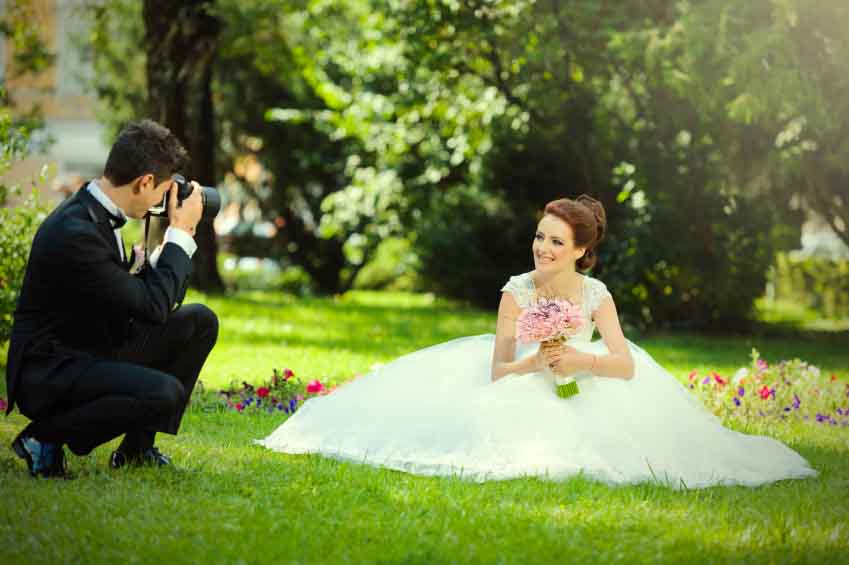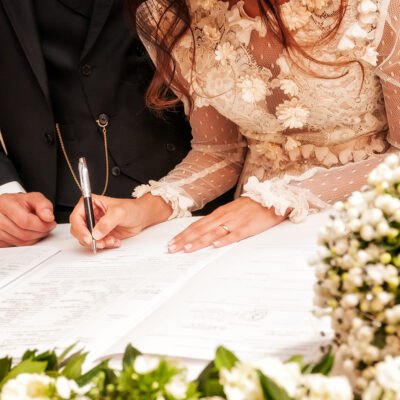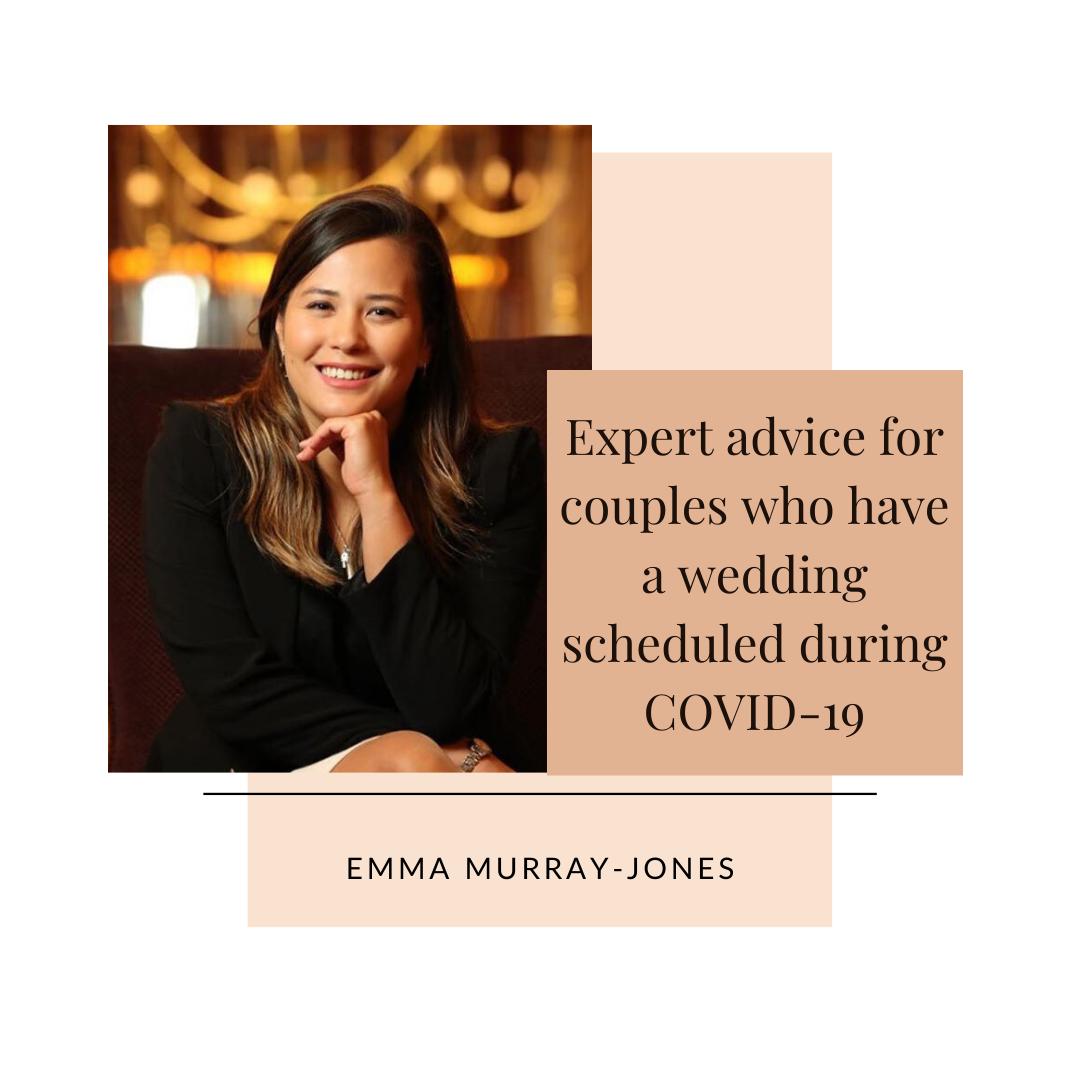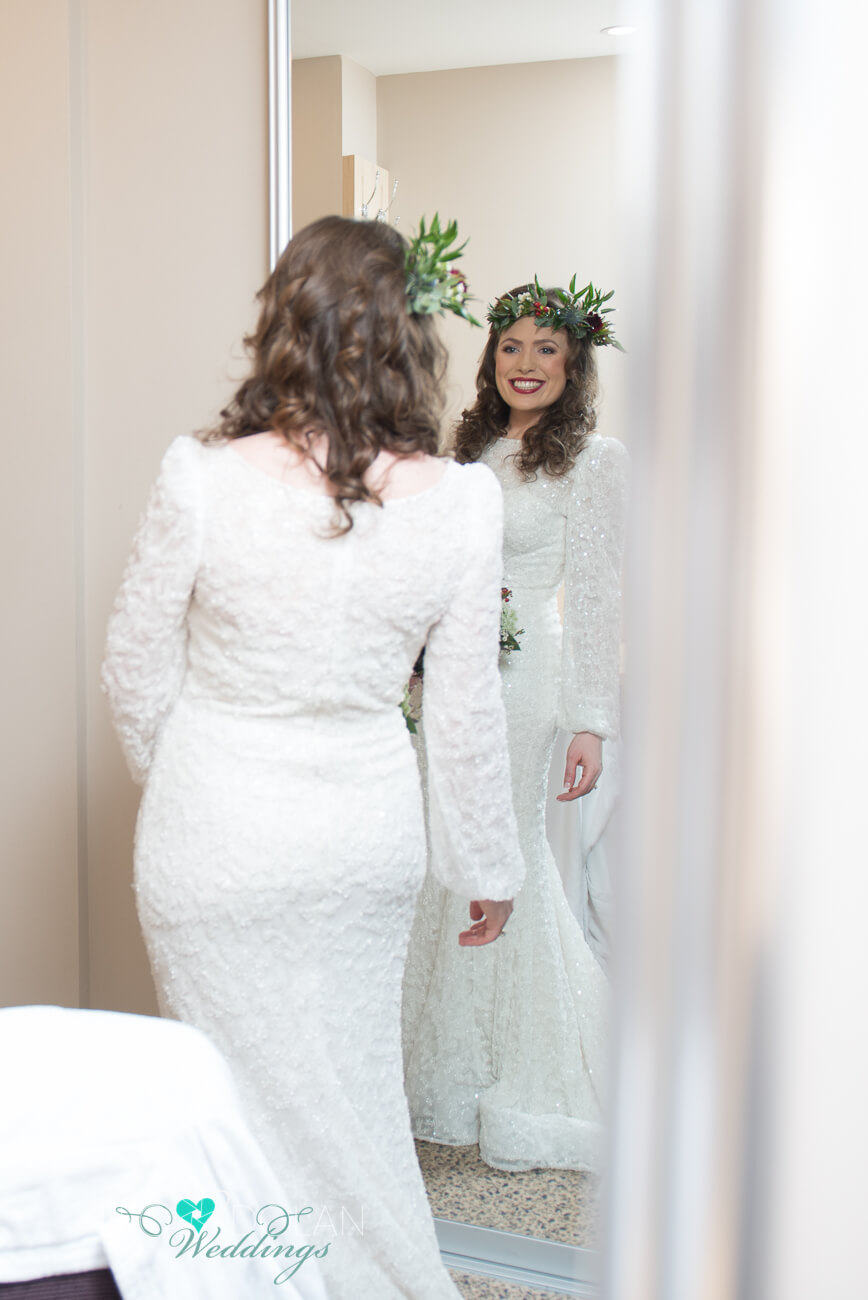You only get one shot at your wedding photos. It’s a day filled with lovely, impromptu moments that you can’t just “do again”, so it’s vital to choose a photographer who not only knows how to capture these precious moments, but who is experienced in wedding photography, which is an art all its own.
So, while it is important to peruse a photographer’s wedding portfolio before choosing them to shoot your big day, you also need to be armed with relevant questions and, according to our poll of Easy Weddings photographers, the 10 most important of these are shared below:
How long have been photographing weddings?
Ideally your photographer will have at least a few years’ experience photoraphing weddings. By looking at their photos over the years, you’ll get an idea of consistency and the quality of their work. It can take more than 10 years in the industry to even start gaining a good reputation.
Who will be our photographer on the day?
Some studios have salespeople doing the selling and booking of photographers and some studios use the services of many different photographers. If you aren’t talking with the photographer who will be shooting your wedding it is important to meet up with them and view their portfolio BEFORE your big day!
Why do you like photographing weddings?
It may sound like an odd question, but it’s a fair one. You want to know your photographer is still excited by weddings and still passionate about the service and work they provide to couples.
How they feel about wedding photography will affect how they perform on the day and how comfortable you are around them.
What is your main style of photography?
Many of today’s wedding photographers take a photojournalistic approach, which is great for capturing real life moments as they unfold, but it is important to know how they approach classic wedding moments, such as family and friend photos and whether they pose couples when needed.
Seeing is believing, so back up the information they’ve provided with a viewing of their portfolio.
Can you provide a list of references with contact details?
Choosing a wedding photographer is a big decision. Aside from the financial investment, you and your friends and family will gaze at these photos for the rest of your life, so don’t be shy about seeking referrals. Why not ask? This way you’ll know how customers have felt about their experiences with the studio’s photography and treatment. It won’t be a decision made solely on photos.
How quickly will our photos be ready and how do we view them?
Your images should be ready to view a week after the wedding although this may depend on the package you have chosen. By that time, your photos should already have been edited and retouched with good colour and density adjustments made and burnt to DVD. It’s a good idea to ask if your photographs are high resolution or not. Also if you like natural shots you may wish to clarify with your photographer how much retouching they do -although their portfolio will give you an idea whether you like their finished product.
Printing and proof albums take a further few weeks. In many cases, online galleries will be available for you to view even whilst you are still on your honeymoon!
How long do you take to produce the album?
Two to three months after album design has been approved is considered reasonable, although it may depend on the binders and services used by the photographer. Some will be faster and some may be slower!
Are there any additional costs we should be expecting?
This is usually limited to wanting extra photos as prints, in the album, for walls and the like. If your balance of the agreed coverage has been paid, the only additional cost will occur is if you request more than what was on your original contract. The most common items couples pay extra for are requesting more time on the wedding day, additional sides in the wedding album, wall prints, framing, parent albums and thank you photos.
What kind of equipment do you use?
You want the peace of mind that your photographer uses professional equipment with a good selection of lenses. At least two cameras bodies with a range of lenses covering wide angle and telephoto. Additional features that may be important if you’re a bride/groom-to-be who takes their photos super seriously, are low-light capability and macro for close ups of details.
Are you a member of any associations and/or do you have qualifications?
Photography truly is an art, so formal qualifications are hardly necessary, but it doesn’t hurt to find out if your photograher-to-be is formally trained or a member of any photography association as it may mean that your photographer will have to abide by their codes of conduct. It is also good to ask if your photographer is a full-time, professional photographer or a part-time photographer. However, obviously, how much weight this last point has is very much up to the bridal couple and there are plenty of great photographers who aren’t necessarily members of any association – or full-time for that matter.

 Changing names after marriage – all you need to know!
Changing names after marriage – all you need to know!  Expert Advice for Couples Who Have a Wedding Scheduled During COVID-19
Expert Advice for Couples Who Have a Wedding Scheduled During COVID-19  10 tips for buying or selling a pre-loved dress
10 tips for buying or selling a pre-loved dress